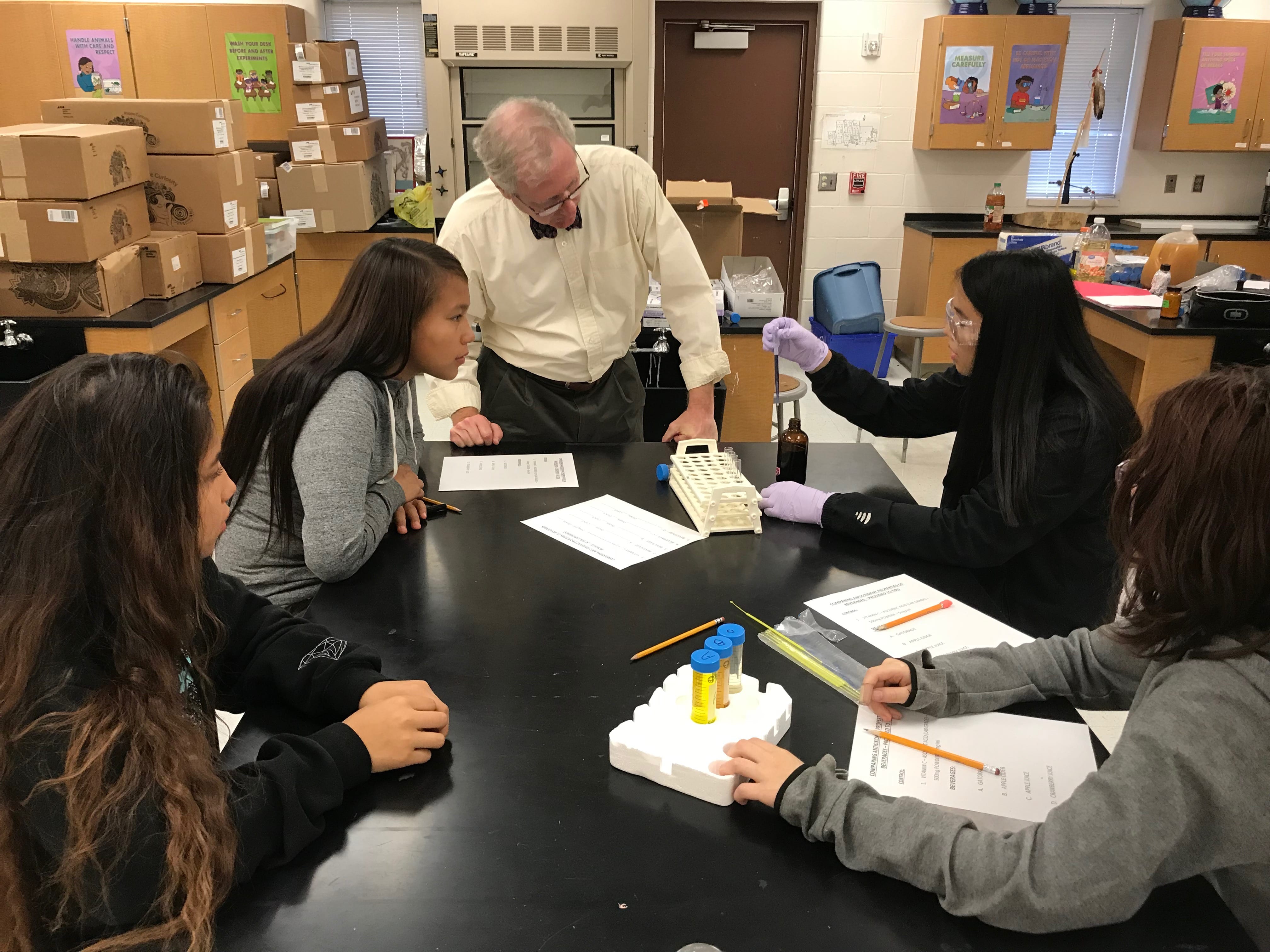Posted By: Evelyn Mantegani, Public Education & Engagement Specialist, ASHG
Maurice Godfrey, PhD, is a member of the Genetics Engagement & Education Network and co-chair of the ASHG Public Education & Awareness Committee. In his role, Dr. Godfrey judges entries to the DNA Day Essay Contest and facilitates the ASHG High School Workshop, an activity held in conjunction with the Annual Meeting in which members bring hands-on activities to local schools. He began his career in bench science and more recently works with Native American communities by bringing lessons in health and science, including human genetics and career opportunities.

ASHG: How did you begin your involvement in public education and engagement?
Dr. Godfrey: My real involvement came when I had young children. Teachers would say, “I heard from this teacher what you did. Can you come to my school?” So, it became an avocation to do that. I had a really extraordinary experience mentoring a high school student who is now a practicing physician. He was the first person in his family to go to college, then he went to medical school, and he went to his number one choice in residency and fellowship. You provide opportunities and give people a chance to go find their way in science.
ASHG: What’s the most rewarding part of your volunteer experiences?
Dr. Godfrey: Having lived in both the bench science world and now this outreach world, you get much more immediate positive, feedback when you’re working with students and communities. When you’re doing bench research, you’re doing hundreds of experiments before one breakthrough, and that may take a long time. When you’re working with a student and see them light up because they’ve just gotten something that they didn’t know, that’s really rewarding.
ASHG: What’s the best memory you have of one of your educators when you were a student?
Dr. Godfrey: [My high school anatomy teacher] was a stickler and was very, very focused. He set a very good model of how you have to be very methodical with science. Then, I had a college professor who made us write every lab report in the same format as a journal article. I had a great genetics professor in college, too. I’m still in touch with him.
ASHG: What’s the best piece of advice for other volunteers, especially those who are just starting out?
Dr. Godfrey: Be very patient, don’t give up, don’t expect dramatic results at first, be very respectful of the communities you’re in, keep things simple, and make them fun. Don’t lecture, try to get things that can be hands-on, and make them relevant to the area.
ASHG: What’s the one thing you want the public to know about human genetics?
Dr. Godfrey: [First], It’s really important for people to know how similar we all are when it comes to our genetics. [Second], with advancing technology in genetics, there are a lot of questions that will be coming up. Where do you draw the line with making manipulations in plants so you can feed more people, versus in people so you can “design” better people? Is that where we want to go? It’s a fine line between ‘are we going to treat genetic diseases’ versus ‘are we going to “enhance” traits in people’?
